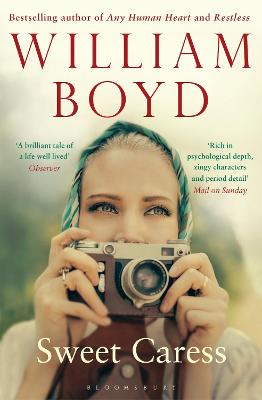Reviewed by brokentune on
Sweet Caress is a prime example of this dilemma:
The story follows the life of Amory Clay, a woman who in her youth defies the advice of her parents and sets out to become a photographer. Soon thrown into the throng of the roaring twenties and early thirties, she lives a life that is similar to some of the real life individuals that I love to read about.
And that is just it - I love reading biographies and stories involving the real personalities, and I just can't get my head around why I would want to read a fictional account that involves characters that are somehow based on but are not - not even fictional versions of - the actual individuals of the time.
Why include fictional characters that resemble Anita Berber and Marianne Breslauer, when they could actually be included as characters? I mean, I get that disguising real people as fictional characters is useful, even necessary, to offend contemporaries of the author, but this is hardly the case here.
After that I lost interest and skim read to the end.
This is just another case where I'd prefer a non-fiction book about the era to a literary attempt at historical fiction.
Reading updates
- Started reading
- 12 April, 2016: Finished reading
- 12 April, 2016: Reviewed
